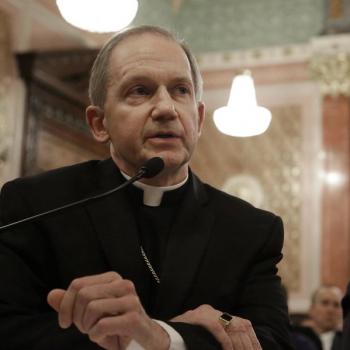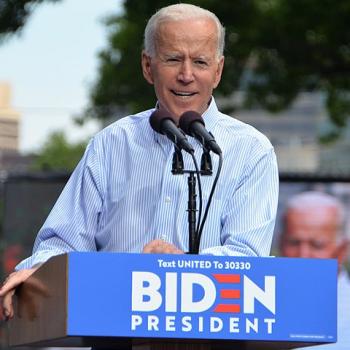In Part I we discussed whether Alfie Evans’ death was murder. Here, we delve more deeply into parental rights, the use of G.K. Chesterton by Dale Ahlquist, and government-run health care.
Mr. Ahlquist argued in Catholic World Report that removing Alfie from life support was still immoral, because it was against the will of his parents. The parents, Mr. Ahlquist wrote, were the ultimate authority over Alfie, not doctors or courts, and that parents’ authority over their children is absolute.
In medical care, this is not always true. In few arrangements does a parent get to actually consent about care for a child. If my child were to go to an emergency room and the surgeons strongly indicate that my child had appendicitis with a need for a surgical procedure, I cannot elect to avoid permission for this operation. Courts often adjudicate these matters on behalf of the hospital and health care provider plaintiffs, always ruling in favor of surgical intervention. Another example is blood transfusions for children of Jehovah’s Witnesses. Hospitals and physicians are obligated to ignore parental refusal for blood transfusions.
Mr. Ahquist also fails to address UK law, specifically the 1989 Children Act. The Children Act was, according to the magazine Vox, was drafted following several child abuse scandals in the 1980s, especially a scandal in which more than a hundred children removed from their homes for suspected abuse were later returned, though a later theory found that most were, in fact, being abused.
The Children Act is “designed to safeguard child welfare by giving the state limited powers to intervene against a parent’s wishes in certain cases, including medical care,” Tara Isabella Burton writes. “The logic is that a court will rule in the best interest of the child, even when it contradicts the best interest or desire of the parents.”
The irony is that Mr. Ahlquist is making the same argument – complete autonomy of parent over child – that is made by pro-choice advocates. Pro-choicers assert that the mother and no one else has ultimate authority over her body, or over the baby that is in her body. Similarly, Mr. Ahlquist and the pro-lifers argue that parental authority is absolute: for Alfie’s parents as well as the transfusion-refusing Jehovah’s Witnesses, or the faith-healing Christians denying permission for the appendectomy for their child.
But in the UK and in the United States, there are limits to parental authority over children, even infant children. Otherwise, child abuse would not be against the law.
On to Chesterton. Mr. Ahlquist writes that Chesterton
…predicted that with the rise of bureaucratic health care, “health” would be given preference over life. He warned that the mere pursuit of health would lead to something unhealthy. He warned that official science would become more official and less scientific. He predicted that we would be subject to a tyranny of health care officials who answer to no one. He also saw the precedence of judicial murder. And he foresaw the current intolerance of faith in general and Catholic faith in particular.
But Mr. Ahlquist offers no quotations from Chesterton to support these claims. Instead, he offers material that has nothing to do with health care or with modern, secular England. He quotes, of all things, Chesterton’s observations on the death penalty and decadence in ancient Rome:
Criminals were captured and executed with more and more ease and swiftness: until suddenly people found out that no point was really being omitted except the point of whether they were criminals. First bad men, then less bad men, then doubtful men, then many good men, then eccentric and heroic men passed quite mechanically to a mechanical death. At last a God went with them and passed unnoticed in the crowd.
It is a stretch to tie this to the Alfie Evans case. If it applies to anything, it applies to the American love for capital punishment, especially among American pro-lifers. But a case in which a toddler was removed from life support to allow the inevitable to happen? This is nothing less than intellectual dishonesty.
Mr. Ahlquist’s real beef is with nationalized health care, especially Britain’s National Health Service. As I quoted him above, he dismisses it as “the rise of bureaucratic health care.” This is a strawman. Any human endeavor, government or private sector, large or small, comes with bureaucracy. Bureaucracy is the price we pay for transparency and accountability.
But the real failure of Mr. Ahlquist’s argument is that it ignores two realities. The first is, in Britain, everyone has, in law, a right to health care from birth until death. For free. Alfie was in Alder Hey Children’s Hospital for sixteen months, receiving world-class care. Cost to his parents: Nothing. Not so much as a shilling.
But is government-run health care un-Chestertonian, since it’s a function of Big Government? Not according to English Chestertonian William Oddie, author of Chesterton and the Romance of Orthodoxy. Writing in England’s Catholic Herald in January, 2012, Mr. Oddie offered an articulate defense of NHS – and a blistering critique of American health care. While Americans spend 7.4 percent of GDP on our health care system, the British spend only 7.2 percent of GDP on theirs. “For a system,” Mr. Oddie wrote, “to which everyone in the population has an absolute right, and which most of those (I am one) who actually have any real experience of it, consider pretty effective.”
How effective? Mr. Oddie writes:
I have personal reasons to feel strongly about the NHS. It’s quite simple: due to complications deriving from the fact that I am a type two diabetic, I need an appointment with specialist podiatrists every two weeks, and I am on six different kinds of medication. These keep my condition under control but they would be beyond my means.
Mr. Oddie concludes, “In America I would by now be bankrupt, very ill, or dead.”
Quoting from the American Journal of Medicine, Mr. Oddie offers this statistic: 61 percent of American bankruptcies are due to health care costs. “It is simply insane,” he writes. “And these people have the infernal gall to equate our system with Soviet Communism (which incidentally had no public healthcare system at all).”
Which brings me to the second reality that Mr. Ahlquist ignores. In America, the Alfie Evans drama is played out every day, in hospitals across the country, thanks to Americans having no legal right to health care. Mr. Ahlquist who appallingly blasted the NHS and the English doctors and courts for murder, ignore this fact about America: that we must start go-fund-me campaigns, or go bankrupt, or die, for the care that Alfie got for free. While American pro-lifers support cutting Medicaid, ensuring that even fewer people will have access to life-saving health care, under the NHS, Alfie Evans received world-class, expert sub-specialty treatment
No parent should have to face what Alfie’s parents faced. No one should be faced with having to make the devastating decision of cutting off life support for a loved one, especially a child. My heart goes out to them. But it does no good at all to exploit this tragedy for a narrow political agenda that demonizes doctors and judges, while ignoring what the Church actually says about end-of-life care as well as the benefits of NHS vs the horrors of American health care. Enlisting G.K. Chesterton in this battle, this way, does him no good either.
Technical assistance for this article was provided by Dan Conway, M.D.












